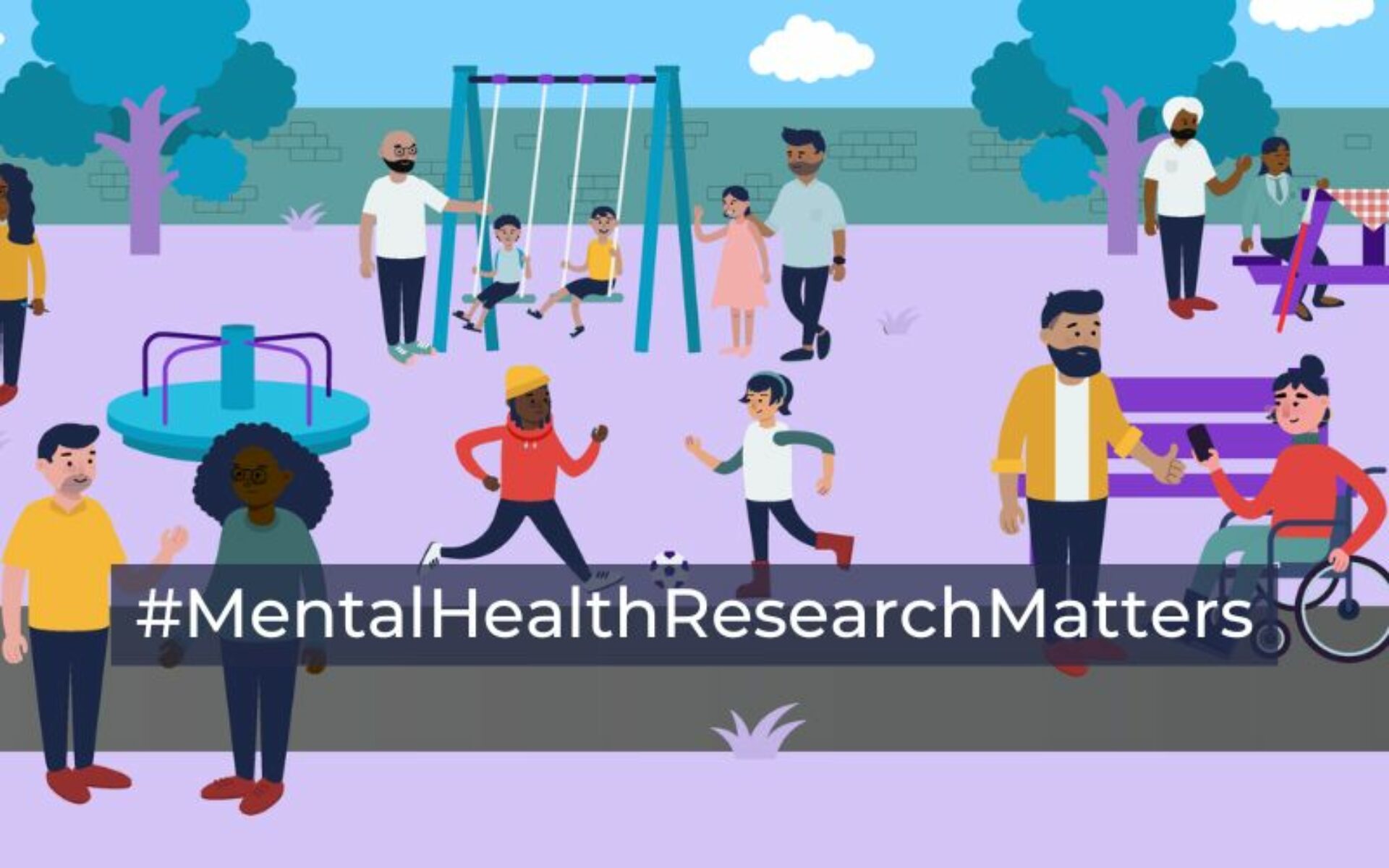As the first week of the #MentalHealthResearchMatters campaign comes to a close, we look at what’s been shared so far!
Vanessa Pinfold
About three years ago we had the idea to start a conversation about why ‘mental health research matters’ (and does it) as part of a piece of work funded by UK Research & Innovation (UKRI).
Last week, after many months of planning, particularly by Daisy Armitage at McPin, the conversation was launched on World Mental Health Day.
The idea behind this ‘conversation’ is to surface interest about how we do mental health research, what we focus upon and what could be done differently, as well as celebrate progress, achievements and consider next steps for the sector.
I have worked in mental health research since I was 22, when I started a PhD at Nottingham University. Now I lead a mental health research charity, set up to champion lived experience expertise as a vital component of all stages of the research process, and have just celebrated my 50th Birthday.
You could say I have a deep and personal interest in #MentalHealthResearchMatters because my career and life have been orientated around research.
But that interest does not preclude me from questioning how we do research or why are we doing research at all. I am impatient to see mental health research deliver better outcomes for everyone affected by mental health issues.
The groups whom I think of first when I say ‘everyone’ are:
- People who personally identify as having mental health issues
- Family members, friends and carers of people affected by mental health issues
- The practitioner workforce employed in mental health roles across the voluntary sector, NHS and private companies
- The research workforce who can be found in academia, policy think tanks, charities and elsewhere
- The general public living in communities that are impacted by structural inequalities, poor mental health, climate & environmental uncertainty, the cost-of-living crisis and pressurized public sector services
The ultimate goal is a huge task; improving the mental health of the nation. In week one of the campaign, we have started to surface why #MentalHealthResearchMatters to so many people – and the reasons concern our need for more and better solutions.
- We’ve been recognising the need for evidence-based support – identifying treatments that ‘work’ for some groups of people, giving hope that mental health can be improved and there are choices of support on offer. Research is a key driver of better understanding of mental health and the creator of innovative solutions that, if put into practice, can improve the quality of people’s lives.
- All aspects of our lives affect our mental health. There is value in research that takes a truly whole-life perspective, understanding discrimination and poverty as well as therapy, medication and service re-design.
- Ultimately, research is important because it can improve lives. It can influence policy and practice, including how resources are distributed or regulations are drawn up.
Our webinar on Monday 10th October was on the topic of Inclusive Research. This is a vital part of the conversation for mental health research.
Thank you to our host Celestin Okoroji from Black Thrive Global and guests from three UKRI networks: Praveetha Patalay, Yasmin Ahmadzadeh, Panos Spanakis, and Karen Mak. You can access the whole conversation here.
Our guests started some interesting conversation threads, including the role of researchers as activists and disruptors. They discussed how research systems need to re-orientate to be more inclusive and useful because often findings are not generalisable, or quality of evidence being produced is low-grade.
Our panellists acknowledged that the measurement question in mental health needs progressing – which outcomes are important and how do we measure them?
They recommended that all mental health research should be concerned about inequalities – and how we don’t need inequalities scientists per se, but everyone should be engaged in the study of this fundamental driver of poor mental health.
The co-ordination team are busy summarising this webinar with an infographic and short excerpts to follow. Thank you for getting involved.
Vanessa Pinfold is Research Director at McPin.
The #MentalHealthResearchMatters campaign is running from 10th October to December 2022. UK Research & Innovation (UKRI) funded 8 mental health research networks to tackle a variety of mental health research subjects, ranging from youth mental health to violence and abuse, to loneliness and social isolation. Visit the website to find out more.
#MentalHealthResearchMatters is a digital conversation about why mental health research matters, what good mental health research looks like and how we can all get involved to make a difference.
